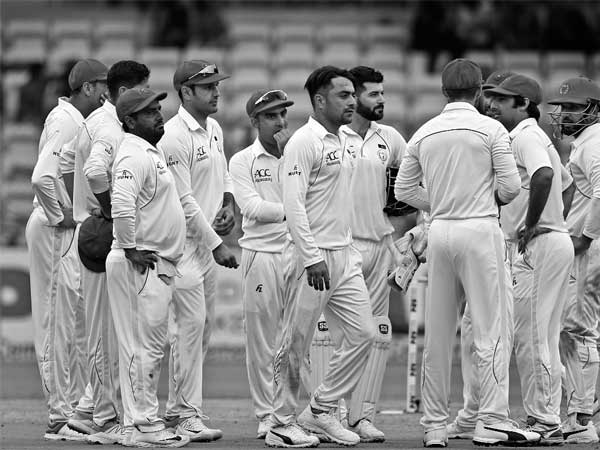
There’s been a bit of a churn in international cricket over the last few weeks. One was witness to one of them at the picturesque Dehradun when the latest team to enter the Test portals, Afghanistan, comfortably beat the more experienced Bangladesh 3-0 in the first T20 series hosted by the minnows.
A few days later, unfancied Scotland created history by beating a strong England, for the first time in a One Day International at Edinburgh. A few weeks before these landmark victories, Ireland — the eleventh entrant into the portals of Test match took Pakistan to the wire before losing narrowly to the visitors. The Irish may have lost their first Test match but won the hearts of the cricketing world with their spirited display.
These three results reiterate the groundwork done by the International Cricket Council (ICC) over the past two decades of sowing, and in some cases strengthening, the seeds of cricket with their affiliate cricket programmes.
My association with Singapore cricket (2007 to 2009) gave me the opportunity to watch Afghanistan grow as a cricketing nation by participating in ICC and Asian Cricket Council (ACC) tournaments. From playing ACC tournaments in 2004, the team reached the ICC World Cup tournament held in Australia and New Zealand in a mere eight years. This year will see Afghanistan become the twelfth nation to play Test cricket. A record of sorts considering the entire journey — of a mere fourteen years — has seen the Afghans graduate (from Associate ICC tournaments) to the highest platform of cricket - Tests.
The history of Afghanistan is pockmarked by bullets and violence. The beautiful country, ravaged by war and peace, is the most sought after commodity. Their journey from North West Frontier Province (NWFP), where they started playing with tennis balls, during the Soviet occupation of their country, to Bangalore where they make their Test debut is not just historic but laden (literally) with blood, seat and tears.
The three teams that have made the cricket world stand up and take notice have had their struggles to reach the pinnacle of cricket. If it was a mere fourteen years for Afghanistan, it was much longer for the Irish who were introduced to the noble game by the English in the 1700s but found favour with the cricketing world thanks to their spirited showing in the 2007 ICC World Cup when they beat Pakistan by 3 wickets and in the 2011 ICC World Cup when they beat their neighbour England.
Though the Scots are yet to achieve Test status, the team has played three ICC World Cups and T20 World Cups. Their recent six-run victory over England and their showing against Pakistan in the impending One Day Internationals is bound to make their case stronger for the ultimate recognition.
The churn one refers to lies in the attitude of these teams who are not fazed by reputations of fancied and experienced teams that they are now facing in International cricket. Gone are the days when recognised teams took their encounters with associate members like Scotland and Ireland lightly playing second string sides. Team India will need to be very careful in their Test encounter against Afghanistan and in their One Day matches scheduled against Ireland later in this summer.
A chance encounter with the stocky Afghanistan wicket-keeper batsman, Ahmad Shahzad in Dehradun gave me an insight into the mind of the team that was about to make their historic debut as a Test playing nation.
“They’re playing the bowler and not the ball,” was Shahzad’s simple explanation to why the Bangladeshi batsmen abdicated to the Afghan spinners, Rashid Khan and Mujeeb Ur Rahman, during their three match T20 series. For the entire team that was fasting, during the holy period of Ramzan, it was mind-blowing to watch them full of pep and vigour on the field of play not to forget the uncomfortable hot and dry weather that the venue had to offer.
In a sense, the Afghanistan teams attitude is very direct and cavalier, akin to the West Indies teams one has seen over a period of time. When their skipper, Asghar Stanikzai makes a statement that his teams spinners are better than the Indian spinners, it does not come across as an empty boast but a statement made thanks to pure confidence and self belief.
When Clive Lloyd’s West Indians took on the world in the late 70’s and the 80’s, it was evident that they were full of self belief and not for once did they ever ditch the cavalier attitude of playing cricket whether they won (which was for most of the time) or lost.
The Irish, Scots and the Afghans may not have the talent, at this point in time, that the Windies had during the golden era but their recent performances show that they do have the confidence and the right attitude - and that’s half the battle won!
(The writer is a former Cricket Club of India captain and Bombay University cricketer)





